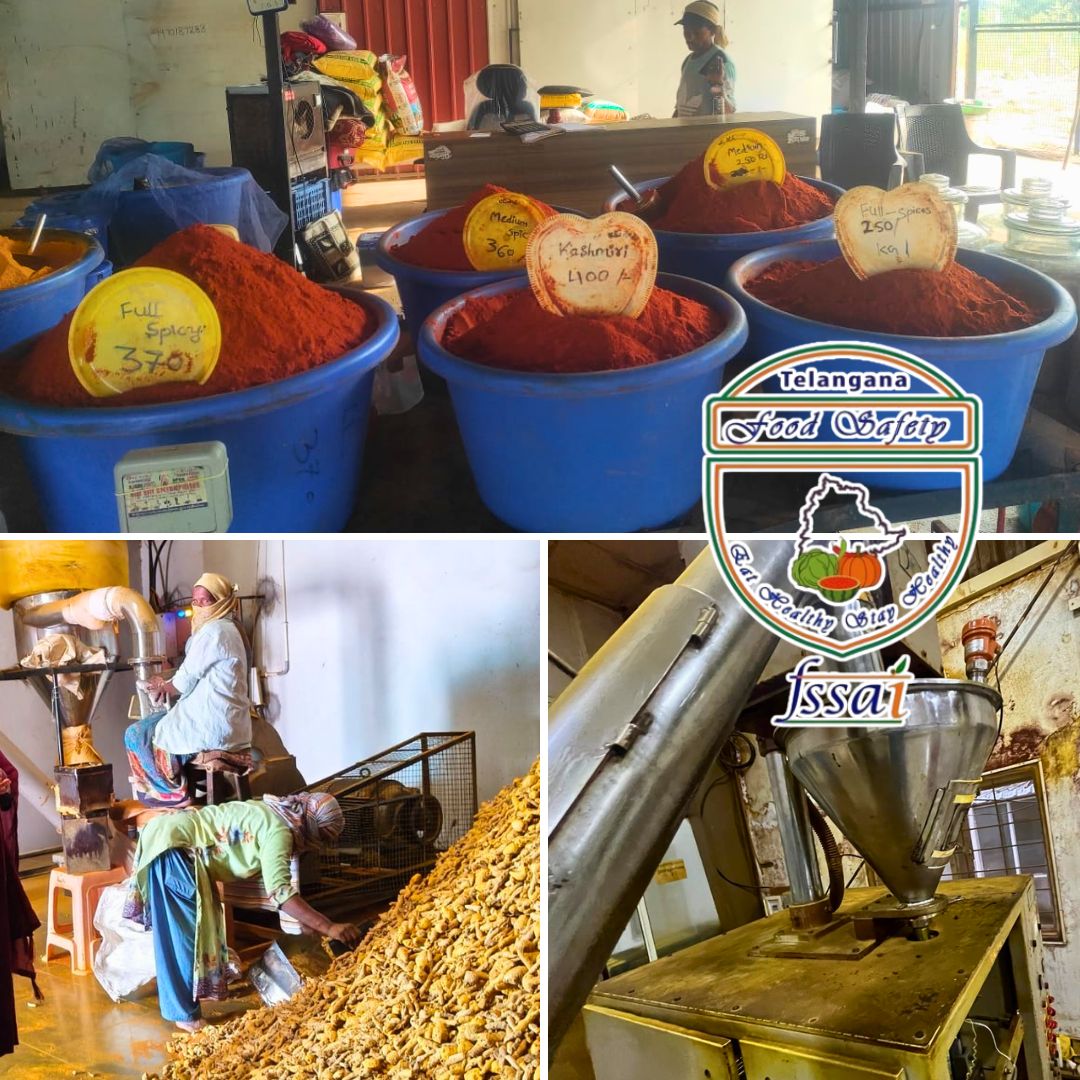Telangana food safety officials recently inspected over 30 spice manufacturing and repacking units state-wide, uncovering critical violations including pest and rodent infestations, poor hygiene, unlabelled and expired products, and lack of compulsory food safety-trained supervisors.
Contaminated stock, including 15 kg of black pepper and 18 kg of bay leaves laced with rat faeces, was seized. Authorities have issued improvement notices and commenced legal action to enforce food safety standards and protect consumers.
Violations and Enforcement Measures Unveiled
During the rigorous inspections carried out mostly within Hyderabad and Rangareddy districts, serious breaches of the Food Safety and Standards Act were detected at units such as Srivari Spices & Foods Ltd and Divine Spices. Officials found an alarming presence of rodent contamination in spices and unhygienic storage and processing conditions.
Several units failed to maintain medical fitness records for employees and lacked supervisors trained in the Food Safety Training and Certification (FoSTaC) programme, essential for adherence to hygiene norms. Besides seizing dangerous stock contaminated with rat faeces, including black pepper and bay leaves, authorities confiscated unlabelled curry leaf powder violating labelling laws.
Over 40 samples spanning turmeric, coriander, chilli, and other spices were collected for detailed laboratory testing, distinguishing between random surveillance and targeted enforcement sampling based on suspected violations.
Broader Context of Food Safety and Consumer Protection
This crackdown reflects Telangana’s commitment to addressing a growing issue affecting food quality and safety nationwide – adulteration and contamination of spices and food products. Food safety authorities are intensifying inspection drives while promoting awareness and compliance among manufacturers.
The state has also inspected other food sectors recently, including prominent pizza chains and local eateries, indicating an expansive approach to public health protection.
The emphasis is not only on punitive action but also fostering adherence to Good Manufacturing Practices (GMP) through certified training and regular audits, vital to preventing such hazardous lapses.
The Logical Indian’s Perspective
Ensuring the safety of everyday food items like spices is central to public health, yet these inspections show systemic vulnerabilities that threaten consumer trust and well-being. While strict enforcement against violations is necessary,
The Logical Indian believes that sustained improvements require collaboration-education, incentives, and support for small producers to upgrade hygiene standards and certification. Consumers too play a pivotal role through vigilance and informed choices.
#FoodSafetyTelangana: As part of the #SpicesDrive, team conducted inspections across all districts of Telangana, covering 30+ spice manufacturing and repacking units. Over 40 enforcement & surveillance samples of chilli, turmeric, black pepper, coriander , curry leaves powder &… pic.twitter.com/eZ4Hb57MuN
— Commissioner of Food Safety, Telangana (@cfs_telangana) October 13, 2025












